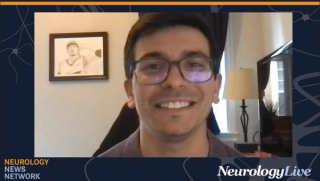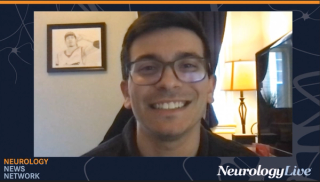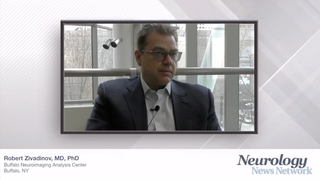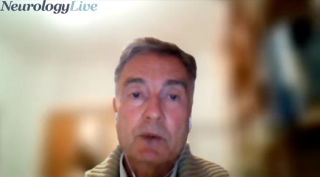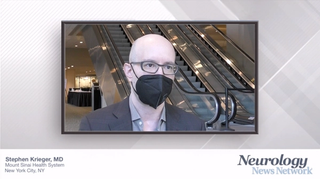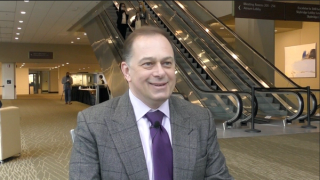
MS and Demyelinating Disorders
Latest News
Latest Videos

CME Content
More News

Chris Kalafatis, MD, MRCPsych, discussed a new tool, the Integrated Cognitive Assessment, developed by Cognetivity, and its potential for patients with dementias and multiple sclerosis.

Here's what is coming soon to NeurologyLive®.

Results from the cohort study contrast with reports in multiple sclerosis, finding that new remission silent lesions were rare in both myelin oligodendrocyte glycoprotein antibody disease and aquaporin-4 antibody neuromyelitis optica spectrum disorder.

The cohort study was conducted using data from the Danish Multiple Sclerosis Registry for women with clinically isolated syndrome and relapsing remitting multiple sclerosis.

Take 5 minutes to catch up on NeurologyLive®'s highlights from the week ending December 10, 2021.

Here's what is coming soon to NeurologyLive®.

Catch up on any of the neurology news headlines you may have missed over the course of the last month, compiled all into one place by the NeurologyLive® team.

Take 5 minutes to catch up on NeurologyLive®'s highlights from the week ending December 3, 2021.
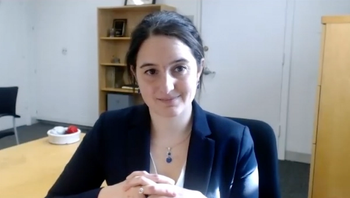
The staff neurologist at the Mellen Center for Multiple Sclerosis Treatment and Research at Cleveland Clinic outlined the positive feedback from patients when discussing telehealth. [WATCH TIME: 4 minutes]

Expert clinicians offer their perspectives on transitional care in pediatric MS, a biomarker for SUDEP, and a novel approach to narcolepsy, among other topics.

The staff neurologist at the Mellen Center for Multiple Sclerosis Treatment and Research at Cleveland Clinic discussed the necessary data to support telemedicine’s integration into clinical care. [WATCH TIME: 4 minutes]
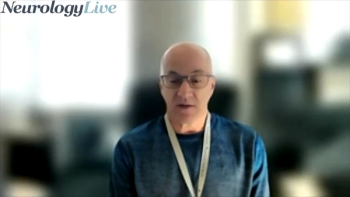
The professor of neurology at the University of Colorado provided insight on the data that reinforced the relationship between B-cell depletion and improved outcomes using inebilizumab (Uplizna; Horizon Therapeutics). [WATCH TIME: 2 minutes]

The staff neurologist in the Neurological Institute’s Mellen Center for Multiple Sclerosis Treatment and Research at Cleveland Clinic outlined the process of choosing a therapy for patients with multiple sclerosis. [WATCH TIME: 4 minutes]

Annualized attack rate was reduced to 0.08 attacks per year after the first administration of inebilizumab, similar to those who were not previously exposed to rituximab.

The director of the Mellen Center for MS Treatment and Research at Cleveland Clinic discussed the possibility of using multiple DMTs to combat the effects of MS. [WATCH TIME: 3 minutes]

Here's what is coming soon to NeurologyLive®.

Identifying the best treatment strategy for Black or African American patients who are at risk for a more challenging clinical course is of great importance and represents a key unmet need in our field.
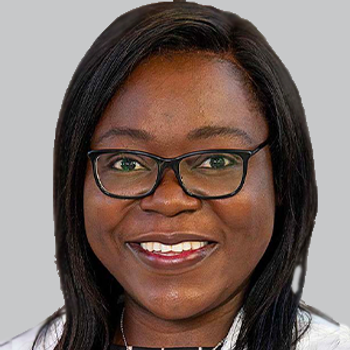
As the field of MS care turns its sights on addressing progressive disease, the need for more biomarkers of disease activity and therapeutic target engagement is perhaps greater than ever.

Take 5 minutes to catch up on NeurologyLive®'s highlights from the week ending November 26, 2021.

In line with the push for more comprehensive care, literature suggests that patients with multiple sclerosis benefit from physical therapy interventions to help manage disease symptoms.

The Bruton tyrosine kinase inhibitor has been evaluated in 2 phase 3 trials, GEMINI 1 and GEMINI 2 (NCT04410978; NCT04410991), in patients with relapsing-remitting and relapsing secondary progressive MS.

The field of MS is shifting focus to issues such as understanding and tracking disease progression, approaches to treatment initiation, and the roles of diet and exercise in pathogenesis and disease course.

Discussing newer treatment options in the MS field, the staff neurologist in the Neurological Institute’s Mellen Center for Multiple Sclerosis Treatment and Research at Cleveland Clinic noted that patient preference can play a part in the decision-making process. [WATCH TIME: 3 minutes]

In cognitively impaired vs unimpaired patients, investigators found functional connectivity decreases in DMNa and DMNp and increases in the right and left frontoparietal networks.

The staff neurologist in the Neurological Institute’s Mellen Center for Multiple Sclerosis Treatment and Research at Cleveland Clinic discussed emerging treatments in the MS field. [WATCH TIME: 2 minutes]







